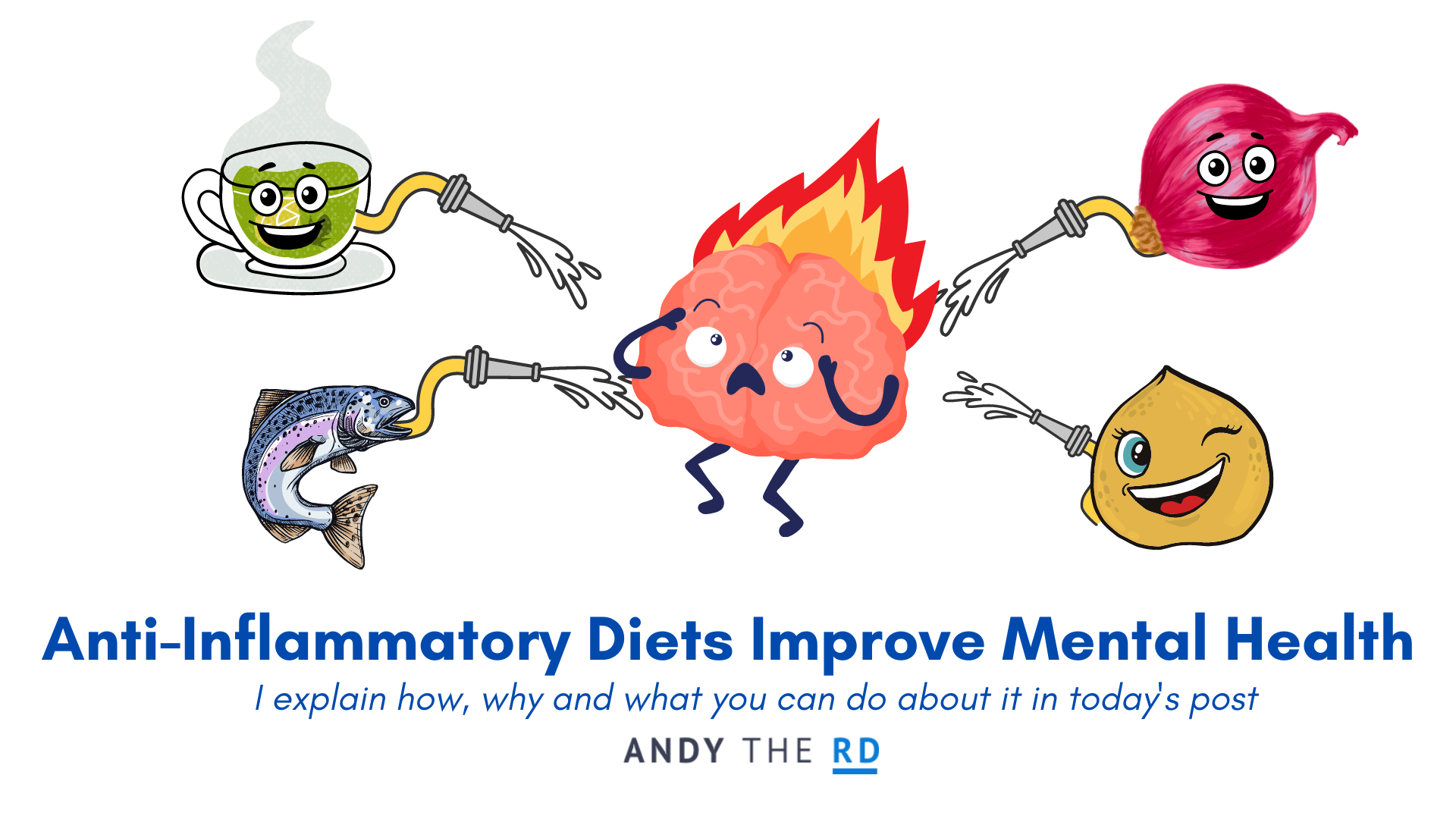An anti-inflammatory dietary pattern may help with depression and mental health.
Why?
Well, it may be related to the fact that emerging evidence suggests that inflammation of the brain cells (neuroinflammation) may indeed be a major driver of depression and other mental health concerns.
Building on yesterday’s introductory post on what it actually means to consume anti-inflammatory foods, today I turn towards some of the major mental health benefits of doing so.
Population level data has hinted for some time a the fact that diets with less anti-inflammatory components are associated with an increased risk of developing depression over time.
If you are unsure which foods and nutrients are considered anti-inflammatory, you’ll certainly want to read my post on that from the other day ( don’t worry, <500 words).
After reading today’s piece, you’ll understand why that matters from a mental health perspective.
Dietary Inflammation & Your Health
It’s probably unsurprising to hear me say that pro-inflammatory diets are associated with increased risk of negative health outcomes including various types of cancers and cardiovascular disease.
This makes perfect sense given that foods with anti-inflammatory potential are generally nutrient dense foods that a professional like myself would identify as essential components of a healthy diet.
Yet what has me intrigued today is the concept that a diet high in anti-inflammatory potential could have meaningful impacts on mental health as well.
“[T]hose on a pro-inflammatory diet have a 1.4x likelihood of being diagnosed with depression or displaying depressive symptoms as compared to those on an anti-inflammatory diet”
The quote above was pulled from a paper that reviewed studies which tallied to a cumulative sample size of > 100,000 participants.
Using Omega-3 supplements as another example, there is evidence to suggest that ~ 1 gram per day of an EPA-rich supplement ( >60% of the content) may reduce depressive symptoms, especially in those taking antidepressant medication.
A supplement would need around 500-600 mg EPA and less DHA to accommodate this criteria, this info can be ascertained via the label.
Which Food Components Are Potentially “Inflammatory”?
I’m the type of dietitian who would much rather focus on the types of foods to emphasize, rather than those to potentially manage one’s intake of.
With that being said, you are probably wondering by now which food components are most responsible for driving up one’s dietary inflammation score.
I certainly hope you are anyway, given that I already covered which foods are considered anti-inflammatory in yesterday’s piece.
Well, saturated fat is a big one.
If you’d like to know which foods are most likely contributing to your saturated fat intake, don’t worry I’ve got you covered there too.
Every Little Bit Counts
Feeling overwhelmed by the concept of a more anti-inflammatory diet?
Let me provide a touch of good news.
There is evidence to suggest that the anti-inflammatory capacity of one’s diet and the symptoms of depression exhibit a linear dose-response relationship.
What this means is, essentially, that incorporating more anti-inflammatory foods gradually will potentially have an incrementally positive effect on reducing the risk of depression symptoms such that small changes over time will add up to a larger more significant protective benefit.
So there’s no need to feel overwhelmed, and certainly if you do and feel expert guidance is required to help align your routine in this direction – You know who to call.
“[L]ong-term anti-inflammatory eating patterns may prevent depression and anxiety, whereas pro-inflammatory eating patterns may promote these conditions.”



